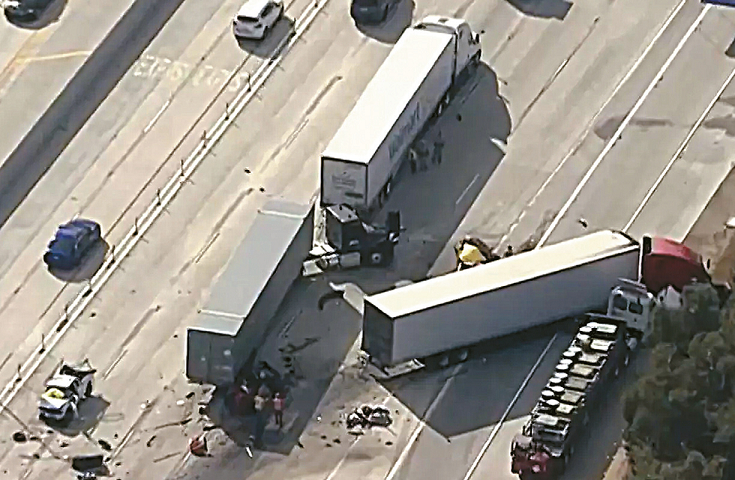Federal regulators froze $40.7 million and warned California it could lose up to $160 million in transportation funds over how the state licenses undocumented commercial drivers.

Sean Duffy, the U.S. Department of Transportation chief, said California refused to halt non-citizen CDL issuances or re-review existing licenses, warning that federal officials could revoke the state’s licensing authority if necessary. Earlier on October 15, Duffy suspended $40,685,225 from the Motor Carrier Safety Assistance Program (MCSAP), citing the state’s failure to enforce English-language evaluations for commercial drivers.
Federal pressure follows a series of deadly crashes involving undocumented truckers. In August, an undocumented driver with CDLs issued in both Washington and California made an illegal U-turn in Florida, causing a collision that killed three people. Florida’s Attorney General sued both states, alleging violations of federal CDL standards. In response, on [the 26th of last month], the Federal Motor Carrier Safety Administration (FMCSA) introduced an emergency rule tightening non-domiciled CDL eligibility. The new rule mandates verification through the Systematic Alien Verification for Entitlements (SAVE) system, strengthens English proficiency checks, limits license validity to one year, and requires a full audit of existing CDLs. Any license found in violation of federal law must be revoked immediately.
Despite the rule’s rollout, another fatal crash occurred just three weeks later. On [the 21st], in Ontario, San Bernardino County, Jashanpreet Singh (21)—identified as undocumented—rear-ended another vehicle on Interstate 10, killing three people. Singh’s CDL restriction had been lifted on October 15th, his birthday. Federal officials said the new rule was not applied in that process. Duffy stated that if California had complied immediately, the restriction would have remained in place, adding that the crash “could have been avoided.”
An FMCSA audit found structural flaws in California’s CDL verification system. About one-quarter of non-domiciled CDLs were issued in violation of federal law, and four licenses remained valid for years even after their holders’ Employment Authorization Documents (EADs) expired. Duffy emphasized that “California is effectively the only state that does not require truck drivers to demonstrate English communication skills or understanding of road signs.”
California officials dispute the findings. The Governor’s Office and California Department of Motor Vehicles (DMV) said drivers obtained their CDLs with federally approved EADs and that all procedures followed federal law. They added that California CDL holders have a crash rate below the national average.
The regulatory dispute is already impacting businesses, including those owned by Korean Americans. Justin Kim, head of the moving company Moving24, said stricter enforcement has increased stop-and-check procedures for compliant drivers—especially those crossing state lines. In the logistics sector, Bill Aboudi, president of AB Trucking at the Port of Oakland, warned that “truck drivers are the final link in the supply chain,” and a worsening labor shortage could “bring port operations to a standstill, like during the pandemic” according to ABC News.

![“LA’s homelessness policy is broken” Katy Yaroslavsky, a Los Angeles City Council member (center), speaks about addressing homelessness and strengthening public safety at a press conference on January 29. [Kyeongjun Kim, The Korea Daily]](https://www.koreadailyus.com/wp-content/uploads/2026/01/0130-Yaroslavsky-100x70.jpg)

![Los Angeles unveils time capsule buried 100 years ago Materials from the time capsule are now on display in the lobby of the Los Angeles Central Library. [Sangjin Kim, The Korea Daily]](https://www.koreadailyus.com/wp-content/uploads/2026/01/0130-timecapsule-1-100x70.jpg)